Filter by
Found 12368 from your keywords: subject="Trauma training and t...
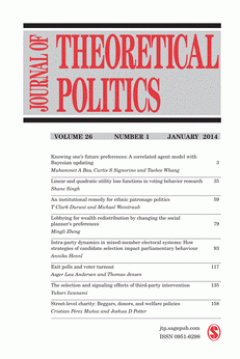
Journal of Theoretical Politics, Volume 30, Number 3, July 2018
- Edition
- -
- ISBN/ISSN
- 09516298
- Collation
- -
- Series Title
- -
- Call Number
- -
- Edition
- -
- ISBN/ISSN
- 09516298
- Collation
- -
- Series Title
- -
- Call Number
- -

Journal of Theoretical Politics, Volume 30, Number 2, April 2018
- Edition
- -
- ISBN/ISSN
- 09516298
- Collation
- -
- Series Title
- -
- Call Number
- -
- Edition
- -
- ISBN/ISSN
- 09516298
- Collation
- -
- Series Title
- -
- Call Number
- -
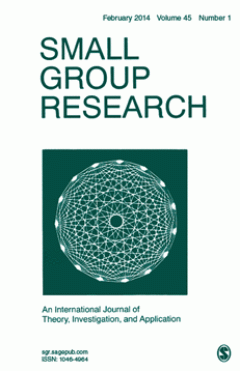
Small Group Research, Volume 49, Number 3, June 2018
- Edition
- -
- ISBN/ISSN
- 10464964
- Collation
- -
- Series Title
- -
- Call Number
- -
- Edition
- -
- ISBN/ISSN
- 10464964
- Collation
- -
- Series Title
- -
- Call Number
- -

Small Group Research, Volume 49, Number 5, October 2018
- Edition
- -
- ISBN/ISSN
- 10464964
- Collation
- -
- Series Title
- -
- Call Number
- -
- Edition
- -
- ISBN/ISSN
- 10464964
- Collation
- -
- Series Title
- -
- Call Number
- -

Small Group Research, Volume 49, Number 4, August 2018
- Edition
- -
- ISBN/ISSN
- 10464964
- Collation
- -
- Series Title
- -
- Call Number
- -
- Edition
- -
- ISBN/ISSN
- 10464964
- Collation
- -
- Series Title
- -
- Call Number
- -
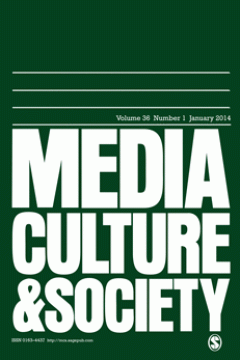
Media Culture & Society, Volume 40, Number 5, July 2018
- Edition
- -
- ISBN/ISSN
- 01634437
- Collation
- -
- Series Title
- -
- Call Number
- -
- Edition
- -
- ISBN/ISSN
- 01634437
- Collation
- -
- Series Title
- -
- Call Number
- -

Media Culture & Society, Volume 40, Number 4, May 2018
- Edition
- -
- ISBN/ISSN
- 01634437
- Collation
- -
- Series Title
- -
- Call Number
- -
- Edition
- -
- ISBN/ISSN
- 01634437
- Collation
- -
- Series Title
- -
- Call Number
- -
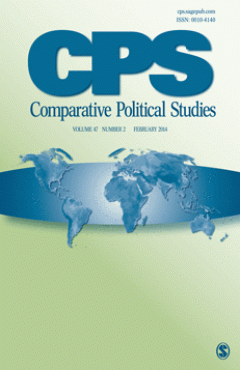
Comparative Political Studies, Volume 38, Number 8, July 2018
- Edition
- -
- ISBN/ISSN
- 00104140
- Collation
- -
- Series Title
- -
- Call Number
- -
- Edition
- -
- ISBN/ISSN
- 00104140
- Collation
- -
- Series Title
- -
- Call Number
- -
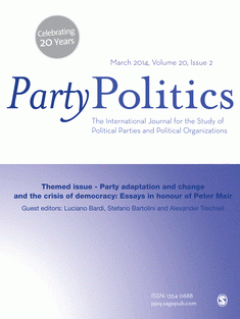
Party Politics, Volume 24, Issue 2, March 2018
- Edition
- -
- ISBN/ISSN
- 13540688
- Collation
- -
- Series Title
- -
- Call Number
- -
- Edition
- -
- ISBN/ISSN
- 13540688
- Collation
- -
- Series Title
- -
- Call Number
- -
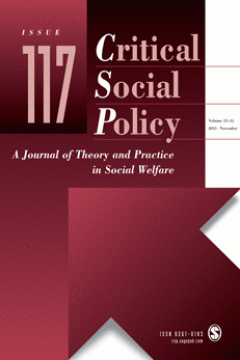
Critical Social Policy, Volume 38, Number 4, November 2018
- Edition
- -
- ISBN/ISSN
- 02610183
- Collation
- -
- Series Title
- -
- Call Number
- -
- Edition
- -
- ISBN/ISSN
- 02610183
- Collation
- -
- Series Title
- -
- Call Number
- -
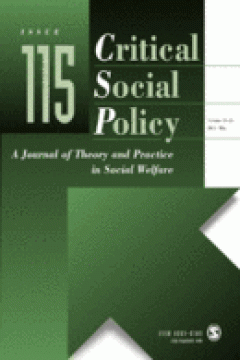
Critical Social Policy, Volume 38, Number 2, May 2018
- Edition
- -
- ISBN/ISSN
- 02610183
- Collation
- -
- Series Title
- -
- Call Number
- -
- Edition
- -
- ISBN/ISSN
- 02610183
- Collation
- -
- Series Title
- -
- Call Number
- -
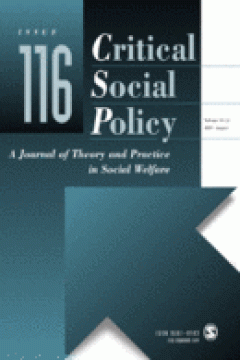
Critical Social Policy, Volume 38, Number 3, August 2018
- Edition
- -
- ISBN/ISSN
- 02610183
- Collation
- -
- Series Title
- -
- Call Number
- -
- Edition
- -
- ISBN/ISSN
- 02610183
- Collation
- -
- Series Title
- -
- Call Number
- -

Gender & Society, Volume 32, Number 5, October 2018
- Edition
- -
- ISBN/ISSN
- 08912432
- Collation
- -
- Series Title
- -
- Call Number
- -
- Edition
- -
- ISBN/ISSN
- 08912432
- Collation
- -
- Series Title
- -
- Call Number
- -

Gender & Society, Volume 32, Number 4, August 2018
- Edition
- -
- ISBN/ISSN
- 08912432
- Collation
- -
- Series Title
- -
- Call Number
- -
- Edition
- -
- ISBN/ISSN
- 08912432
- Collation
- -
- Series Title
- -
- Call Number
- -

Comparative Political Studies, Volume 51, Number 10, September 2018
- Edition
- -
- ISBN/ISSN
- 00104140
- Collation
- -
- Series Title
- -
- Call Number
- -
- Edition
- -
- ISBN/ISSN
- 00104140
- Collation
- -
- Series Title
- -
- Call Number
- -

Comparative Political Studies, Volume 51, Number 7, June 2018
- Edition
- -
- ISBN/ISSN
- 00104140
- Collation
- -
- Series Title
- -
- Call Number
- -
- Edition
- -
- ISBN/ISSN
- 00104140
- Collation
- -
- Series Title
- -
- Call Number
- -

Comparative Political Studies, Volume 51, Number 9, August 2018
- Edition
- -
- ISBN/ISSN
- 00104140
- Collation
- -
- Series Title
- -
- Call Number
- -
- Edition
- -
- ISBN/ISSN
- 00104140
- Collation
- -
- Series Title
- -
- Call Number
- -

Comparative Political Studies, Volume 51, Number 11, September 2018
- Edition
- -
- ISBN/ISSN
- 00104140
- Collation
- -
- Series Title
- -
- Call Number
- -
- Edition
- -
- ISBN/ISSN
- 00104140
- Collation
- -
- Series Title
- -
- Call Number
- -

Keluar dari ekstremisme: delapan kisah hijrah dari kekerasan menuju binadamai
- Edition
- -
- ISBN/ISSN
- 978-979-772-059-9
- Collation
- viii, 245p.; 23 cm
- Series Title
- -
- Call Number
- 303.6 ALI k
- Edition
- -
- ISBN/ISSN
- 978-979-772-059-9
- Collation
- viii, 245p.; 23 cm
- Series Title
- -
- Call Number
- 303.6 ALI k
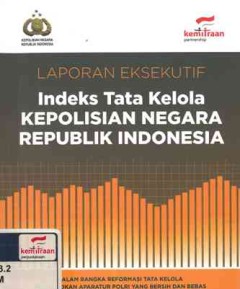
Laporan eksekutif Indeks Tata Kelola Kepolisian Negara Republik Indonesia tah…
- Edition
- -
- ISBN/ISSN
- 978-602-1616-50-5
- Collation
- viii, 56p.; 25 cm
- Series Title
- Seri: Indeks Tata Kelola Kepolisian
- Call Number
- 363.2 TIM l
- Edition
- -
- ISBN/ISSN
- 978-602-1616-50-5
- Collation
- viii, 56p.; 25 cm
- Series Title
- Seri: Indeks Tata Kelola Kepolisian
- Call Number
- 363.2 TIM l
 Computer Science, Information & General Works
Computer Science, Information & General Works  Philosophy & Psychology
Philosophy & Psychology  Religion
Religion  Social Sciences
Social Sciences  Language
Language  Pure Science
Pure Science  Applied Sciences
Applied Sciences  Art & Recreation
Art & Recreation  Literature
Literature  History & Geography
History & Geography